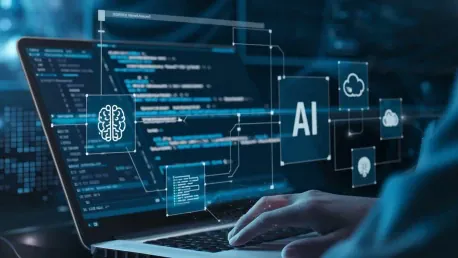In the evolving landscape of technology, the emergence of AI software engineers is a subject of considerable discussion among professionals. OpenAI’s development of the “Agentic Software Engineer” (A-SWE) has brought this topic to the forefront. Unlike typical AI coding assistants that currently exist, such as GitHub Copilot, which enhance human coders’ productivity, A-SWE promises a paradigm shift. It aims to independently handle the entire software development lifecycle, encompassing everything from building applications and performing quality assurance to bug testing and documentation. This revolutionary advancement raises fundamental questions about the future role of human engineers and the overall impact on the software development industry.
The Ambition of A-SWE
OpenAI’s ambition with A-SWE is monumental. Chief Financial Officer Sarah Friar emphasized that this AI could take over tasks that are usually considered tedious or undesirable by human programmers. This capability could significantly increase development capacity, thereby optimizing the workforce. In essence, A-SWE functions to “force multiply” the existing engineering workforce, allowing for expanded production without a proportional increase in human resources. Previous endeavors to create autonomous AI software engineers have faced significant obstacles. For instance, the Peter Thiel-backed Devin project suffered from scalability and cost issues, deterring widespread adoption. However, OpenAI benefits from extensive feedback gleaned from their large language models (LLMs), positioning A-SWE uniquely to overcome these barriers.
OpenAI’s approach is not merely theoretical. With a distribution network of over 500 million weekly active users, the company is well-positioned to spearhead the adoption of A-SWE across various industries. If successful, the introduction of A-SWE could fundamentally alter the landscape of the coding industry, impacting not only the way software is developed but potentially reshaping the job market itself. OpenAI CEO Sam Altman has stated his belief that AI could soon outperform the world’s best human coders, a prediction that underscores the transformative potential of advanced AI in programming.
Shaping the Software Development Landscape
The most significant impact of A-SWE would be felt in the software development process. Traditionally, software engineering has been a human-centric field requiring creativity, problem-solving skills, and collaboration. The introduction of a fully autonomous AI capable of handling all aspects of software development could disrupt this dynamic. By taking over repetitive and time-consuming tasks, AI could enable human programmers to focus on more strategic and innovative work. This shift might lead to higher productivity levels and allow for the tackling of more complex projects that demand human intuition and creativity.
Despite the promising potential, the transition will not be without challenges. Ethical considerations will come into play, particularly around the displacement of human jobs and the security of AI-developed code. Quality assurance and the trustworthiness of AI-generated solutions will need rigorous validation. There is also the broader societal impact to consider – as AI takes on more roles previously held by humans, there must be mechanisms in place to support those whose roles are being supplanted. Nevertheless, the demand for software is continually growing, and A-SWE could be a critical factor in meeting this demand more efficiently.
The Future of Software Engineering
By stepping into roles traditionally held by human engineers, advanced AIs like A-SWE could redefine the future of software engineering. This transition opens up possibilities for re-skilling and up-skilling the workforce to complement AI capabilities rather than compete against them. Professionals might increasingly find themselves managing AI tools and focusing on higher-order tasks that necessitate human oversight and strategic thinking. The collaboration between human engineers and AI could cultivate a more innovative environment, fostering advancements that were previously unattainable due to resource constraints.
The notion that AI could soon be regarded as the leading force in programming is no longer speculative. The changes brought about by A-SWE and similar technologies could lead to enhanced productivity, reduced time-to-market for new applications, and improved software quality. Furthermore, as these AI tools evolve, their capabilities will only expand, potentially ushering in a new era of technological progress. Organizations and educational institutions will also need to adapt, integrating AI-related skills into their curricula to prepare future generations for a different kind of workforce.
A Paradigm Shift in Coding
In the rapidly changing world of technology, the rise of AI software engineers is a hot topic among industry experts. OpenAI’s introduction of the “Agentic Software Engineer” (A-SWE) has brought significant attention to this area. Unlike current AI coding assistants like GitHub Copilot, which serve to boost the productivity of human coders, A-SWE offers a groundbreaking shift. This AI aims to autonomously manage the entire software development process, covering tasks from application building and quality assurance to bug testing and documentation. This significant innovation prompts critical discussions about the future role of human engineers and its broader implications for the software development sector. The potential for AI to handle tasks traditionally performed by humans suggests that the industry might experience substantial transformation, where the role of human beings could evolve towards overseeing and orchestrating these advanced AI systems, rather than carrying out coding tasks themselves.









